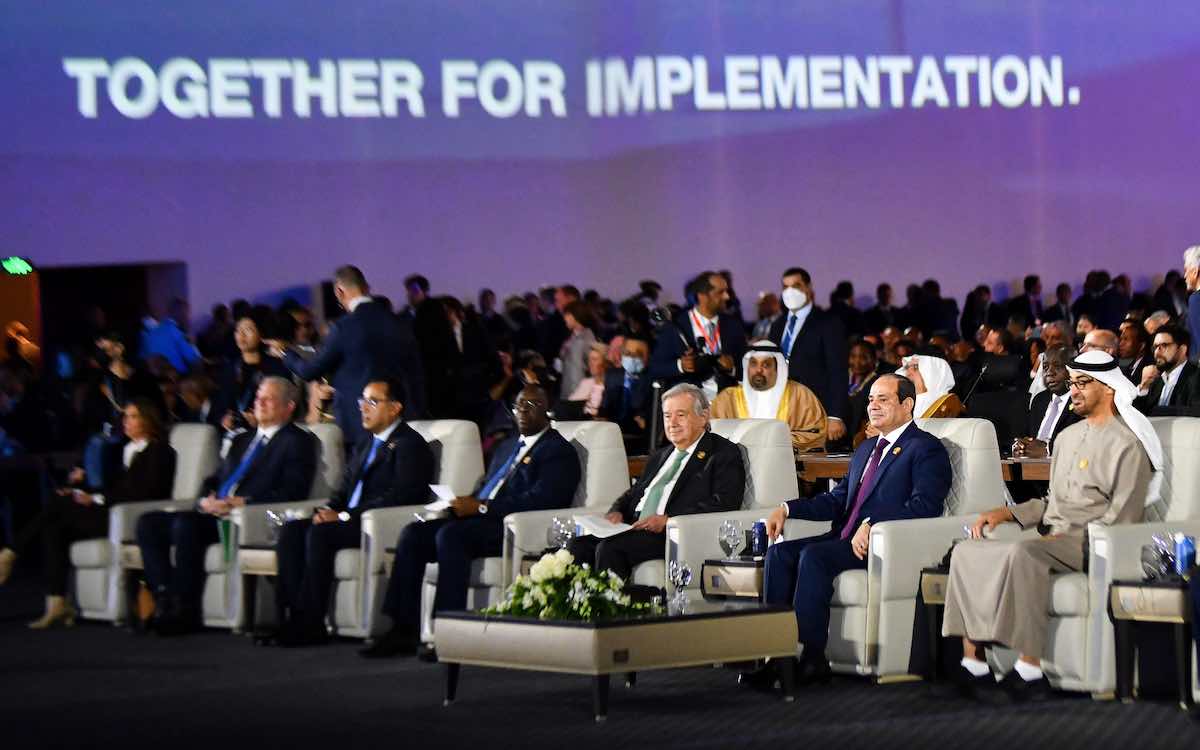I’m at COP27 with The Australia Institute to both translate what is happening to a local audience and update an international audience on the state of Australian climate action.
Why are so many leaders at an ‘implementation COP’?
COP26 in Glasgow was about increasing climate ambition and to do that it required the highest levels of authority.
So over 100 leaders attended, many armed with increases in their short-term targets, known as Nationally Determined Contributions.
It was the culmination of years of COP meetings from 2016 onwards to tease out the rules of the Paris Agreement and the case for more ambition. Following a big, politically charged COP comes the need for implementation. That is usually handled by climate ministers and their bureaucrats.
The Egyptian COP27 Presidency, however, broke from this tradition. It tried to focus on implementation, but at the leader level in a high-level segment titled the Climate Implementation Summit.
This strategy might work to stop backsliding from last year’s commitments, but it will struggle when it comes to the outstanding issue of providing financial compensation to developing countries for climate impacts.
Backsliding
Today, the newly-appointed head of the UN climate agency, Simone Steill warned Summit attendees “we will be holding people to account, be they presidents, prime ministers, CEOs.”
He confirmed he would not be a “custodian of backsliding” because after a big political COP like Glasgow, that is usually what happens.
There is buyer’s remorse when lofty commitments made on a podium require challenging actions on the ground. The time since COP26 in Glasgow, has seen a war in the Ukraine, an energy crisis and increasing tensions between the two largest emitters.
So, having leaders around to respond to this call and to defend their actions is helpful.
President Macron told attendees France will not backslide from its climate targets despite these challenges and confirmed the need to transition away from fossil fuels.
Prime Minister Rishi Sunak backed in the UK’s climate aid commitments despite the well-known state of Britain’s finances. Even Italy’s new right-wing Prime Minister Giorgia Meloni confirmed she will stick with agreed decarbonisation plans.
Where things will unravel will be around the issue of compensating developing countries for loss and damage from climate change.
This constant tension between developed and developing countries has been elevated at COP27 (with a formal agenda item). The Secretary General is setting this issue up as the “litmus test” for COP27. This is a recipe for failure.
Richie Merzian is the inaugural Climate & Energy Program Director at The Australia Institute. He is in Egypt for COP27 talks.










